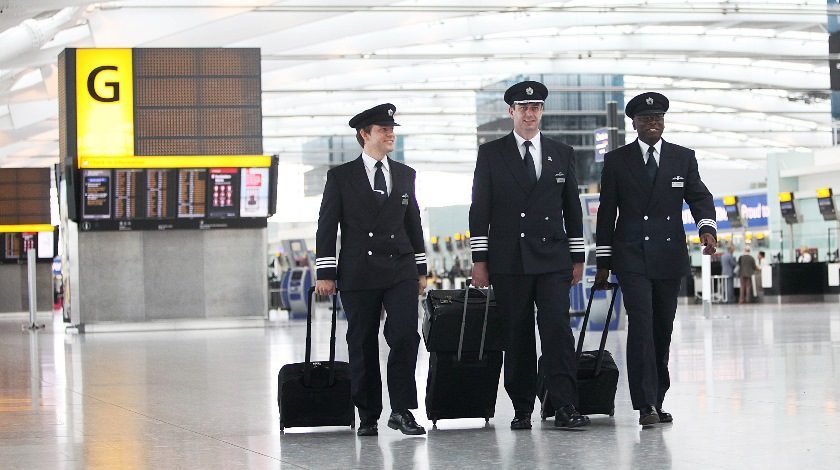When it comes to DUI arrests or convictions, Canadian criminal laws are stringent. A single DUI can prevent a person from entering the country, and there are no exceptions, even for airline staff, such as pilots and flight attendants. Unless given special permission from the Canadian government, anyone with a DUI on their record must first overcome criminal inadmissibility before entering Canada.
What are the current rules for entering Canada with a DUI?
When flying into Canada, all passengers must go through border security to legally enter the country. If a person has even one single DUI on their record, this type of offense is now considered “serious criminality” in Canada, since new legislation came into effect on December 18, 2018. The Canadian government has the right to deny entry to these individuals, unless they have received special prior permission to enter.
While these strict immigration laws may be understandable for everyday travelers, what about pilots and flight attendants who provide an important service? Is travel into Canada allowed for these professionals despite having a DUI?
Unfortunately, airline staff must follow the exact same rules as any other traveler. To clarify, a pilot or flight attendant who has a DUI on their record must overcome their criminal inadmissibility before attempting to enter Canada, even as part of their job.
However, the process of overcoming one’s inadmissibility permanently by way of criminal rehabilitation can be lengthy and take anywhere from 6-12 months to obtain. Pilots and flight attendants who need to travel to Canada for work purposes will often instead first apply for a Temporary Resident Permit (TRP), which can be obtained much quicker and sometimes if circumstances justify it, on an urgent basis.
What if the pilot or flight attendant only plans on remaining in Canada for a few hours or just at the airport?
In many cases, airline staff only stay at the airport for a few hours until their flight takes off. One may assume that this would not be a problem, considering that the individual isn’t leaving the airport. Unfortunately, having a DUI on record will still cause issues even if the person does not plan to leave the airport.
Without previously obtaining a Temporary Resident Permit (TRP) or overcoming their inadmissibility permanently before attempting to enter Canada, a pilot or flight attendant can be refused entry into Canada and held at the airport. This can cause problems for the airline and lead to logistical issues. In other words, if there is a last minute issue with a pilot who cannot legally fly into Canada, he or she must be replaced with someone else who can.
It is important to point out that a pilot or flight attendant does not have to be formally convicted of a DUI, DWI or other similar offense to be deemed inadmissible. Anyone with an offense of this sort cannot legally enter Canada, even if the case is still pending in court.
What options does a pilot or flight attendant have to enter Canada with a DUI?
Any airline staff member who is expected to cross into Canada as part of their duties must first ensure that they are able to legally enter the country. This can be achieved by one of the following two ways:
Applying for Criminal Rehabilitation
Anyone who is convicted of a criminal offense outside of Canada and who needs to enter Canada can overcome their criminal inadmissibility permanently by applying for criminal rehabilitation. A person becomes eligible to apply for rehabilitation once five years have passed since the completion of all conditions of the imposed sentence. Applications for criminal rehabilitation are processed by the Canadian government and take approximately 6-12 months to be reviewed.
As such, waiting to be granted criminal rehabilitation can be a long process, and it’s not always convenient for those who need to travel to Canada on a short notice or in the very near future, as pilots and flight attendants are often expected to do. This is why many airline professionals choose to work with an immigration attorney who can help them apply for a TRP, which would allow them to legally enter into Canada as part of their job quickly.
Applying for a Temporary Resident Permit (TRP)
As previously mentioned, a Temporary Resident Permit allows people to overcome inadmissibility for a specific reason and a predetermined period of time and up to three years at a time. To obtain a TRP, a person must show that they have a significant and valid reason to enter the country, such as by flying an aircraft of passengers.
Canadian immigration attorneys ensure that the TRP application process goes smoothly. A person may apply for this permit even if less than five years have passed from the moment of completion of the sentence or if more than five years have passed and the person has yet to apply for criminal rehabilitation. One can even apply for a TRP if they were only recently arrested. Since a TRP is a temporary solution, it is preferable, if eligibility permits, to apply for criminal rehabilitation as well.
If you are a pilot, flight attendant or other airline staff member that has a DUI, DWI, DWAI or similar offense on record, please contact one of our KLM Immigration attorneys today at 1-888-382-3291 to learn more about your options for entering Canada legally.



